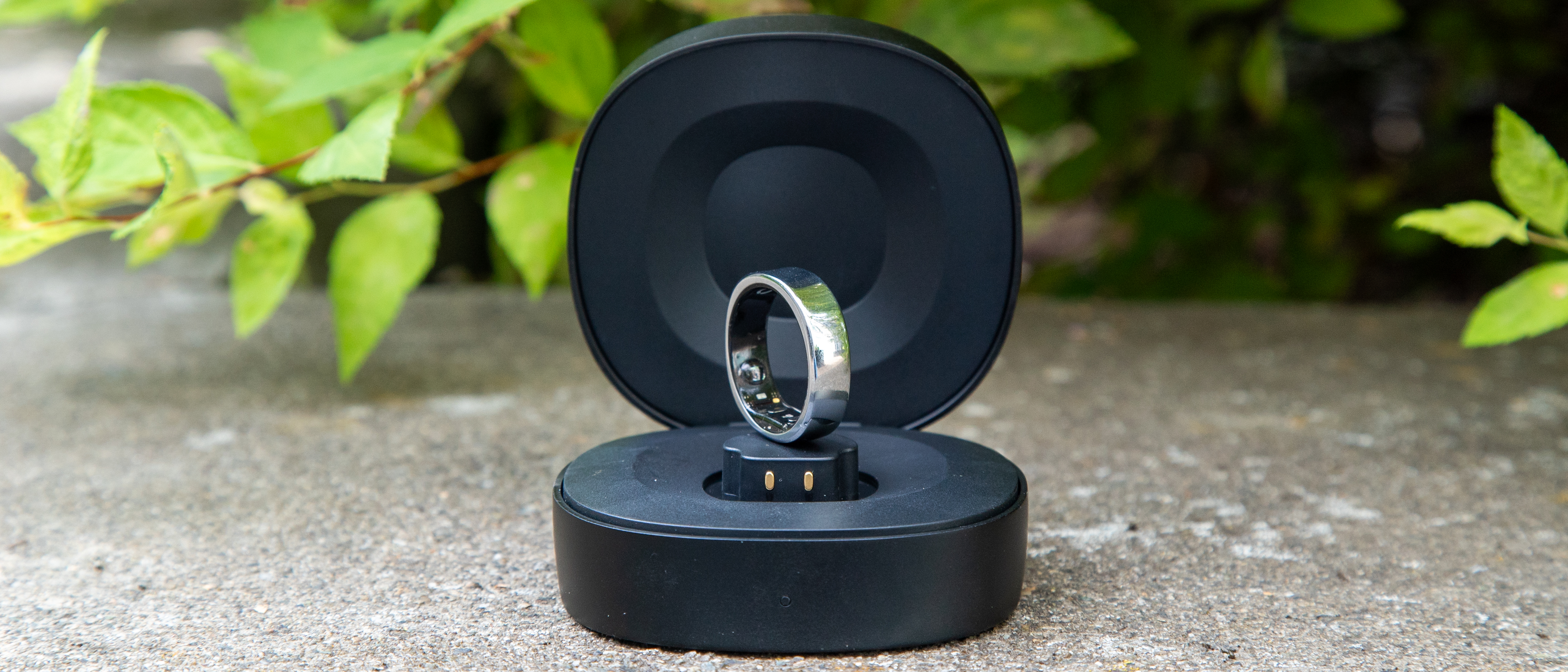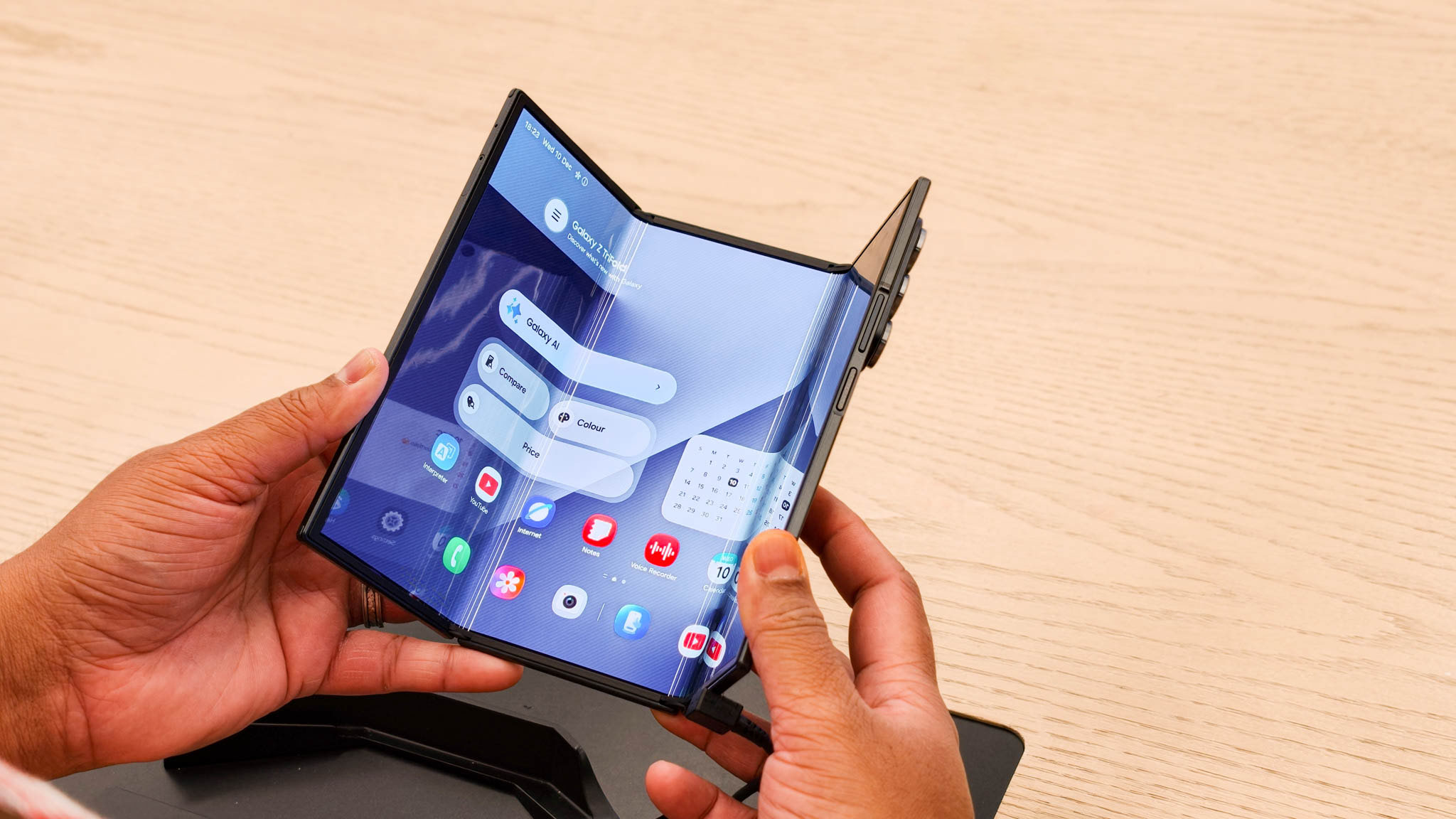Android Central Verdict
The RingConn Gen 2 Smart Ring may not be a huge departure from the first-generation model, but it receives upgrades where they count, expanding battery life well beyond the reach of other smartwatches while adding sleep apnea detection for the first time on a smart ring. It remains a compelling option, even at the higher price, due to the lack of a subscription model and the added charging case.
Pros
- +
Very long battery life
- +
Great design
- +
Sleep apnea tracking can be useful
- +
RingConn sells covers
- +
Great app experience
Cons
- -
Sleep apnea monitoring can drain the battery
- -
Charging case is still huge
- -
No automatic workout tracking
- -
Still no Health Connect on Android
Why you can trust Android Central
It hasn't been that long since I reviewed the original RingConn Smart Ring, but the company is already out with the second generation, which improves on the first in some key ways. This new RingConn Gen 2 has battery life that bests just about any other smart ring on the market and even rivals some fitness smartwatches. Plus, it has a really useful sleep monitoring feature that you won't find on too many devices, hoping it stands apart from the pack.
But compared to smart ring giants like Oura and Samsung, can RingConn carve a sizeable piece of the smart ring pie, or will its efforts go unnoticed by consumers? Either way, the company has a compelling device that somehow improves on its already impressive first-gen smart ring, and some other companies in the smart ring race should probably look to this latest RingConn model as something of a standard for their own efforts.
RingConn Gen 2 Smart Ring: Price and availability
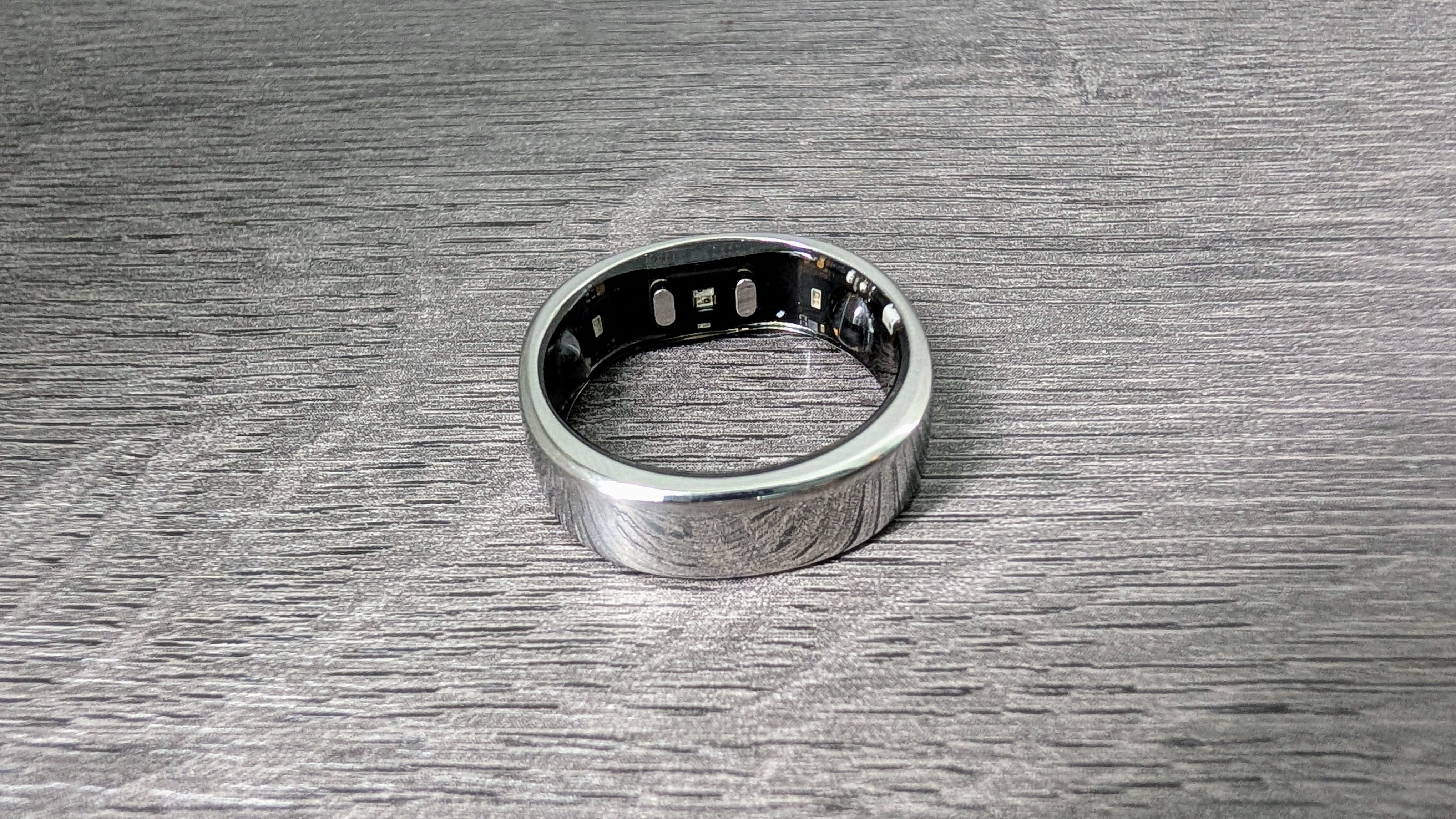
The RingConn Gen 2 Smart Ring is currently available for preorder via Kickstarter and goes on sale in September via the company's website. The device will likely retail for $299, only $20 more than the previous model, and come in three different color options: Future Silver (glossy), Royal Gold (glossy), and Matte Black (matte).
If you preorder on Kickstarter, you're able to grab the ring for as low as $209, depending on the pledge you choose, each of which come with different perks.
| Category | RingConn Gen 2 Smart Ring |
|---|---|
| Materials | Titanium alloy, medical-grade epoxy, PVD coating |
| Protection | IP68 |
| Sensors | PPG sensor, temperature sensor, 3-axis accelerometer |
| Battery | Up to 12 days, USB-C charging cradle (500mAh) |
| Connectivity | Bluetooth |
| Platform support | iOS (Apple Health), Android (Google Fit) |
| Dimensions | Width: 6.8mm, thickness: 2mm |
| Weight | 2-3g (depending on size) |
| Sizes | 6-14 |
| Colors | Future Silver, Matte Black, Royal Gold |
RingConn Gen 2 Smart Ring: What I like
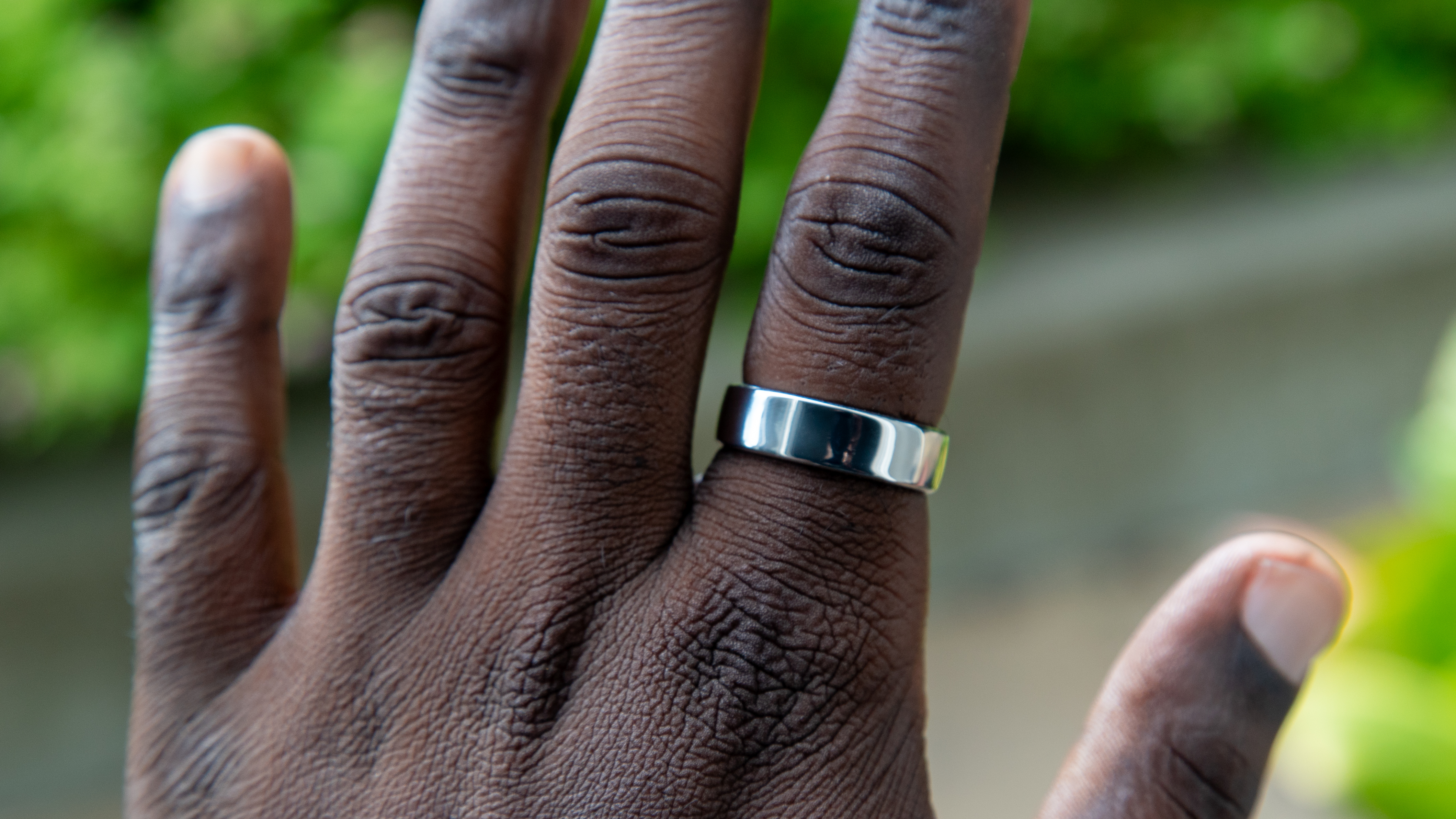
The RingConn Gen 2 Smart Ring is identical to the first model, and that's definitely not a bad thing. I was really impressed with how RingConn designed its smart ring, which is more of a squircle shape than an actual circle.
Like other smart ring models, the RingConn Gen 2 Smart Ring comes in a few different finishes, about the same as what Samsung offers, with gold, silver, and black options. I have the silver model with a fairly glossy finish, which I'm normally wary about, given how my Oura Ring scratches pretty easily, even when I put a cover on it. But the RingConn Gen 2 Smart Ring has fared surprisingly well, and I haven't noticed much in the way of scuffs or scratches in the couple of weeks that I've tested the device. As careful as I try to be with my Oura Ring, it's somehow a magnet for scratches no matter what I do.
Of course, all the sensors are located on the inside. While this mostly follows the exterior squircle design, the bottom has a flat surface where you'll find many of the main sensors. This looks like it would make the ring uncomfortable to wear, but surprisingly, it doesn't.
Get the latest news from Android Central, your trusted companion in the world of Android
RingConn says the Gen 2 Smart Ring is both thinner and lighter than the first generation, which is surprising given the battery life claims of this device. Speaking of, the ring lasts 10 to 12 days on a single charge, which is more than what Samsung or Oura claim for their smart rings. In my use, I would say this is pretty accurate. I'm honestly surprised to see how little battery life is used up at the end of the day, even when tracking workouts. Of course, your battery life will depend on the ways that you use the ring, including how often you track workouts and take advantage of the ring's newest feature, which I'll get to in a bit.
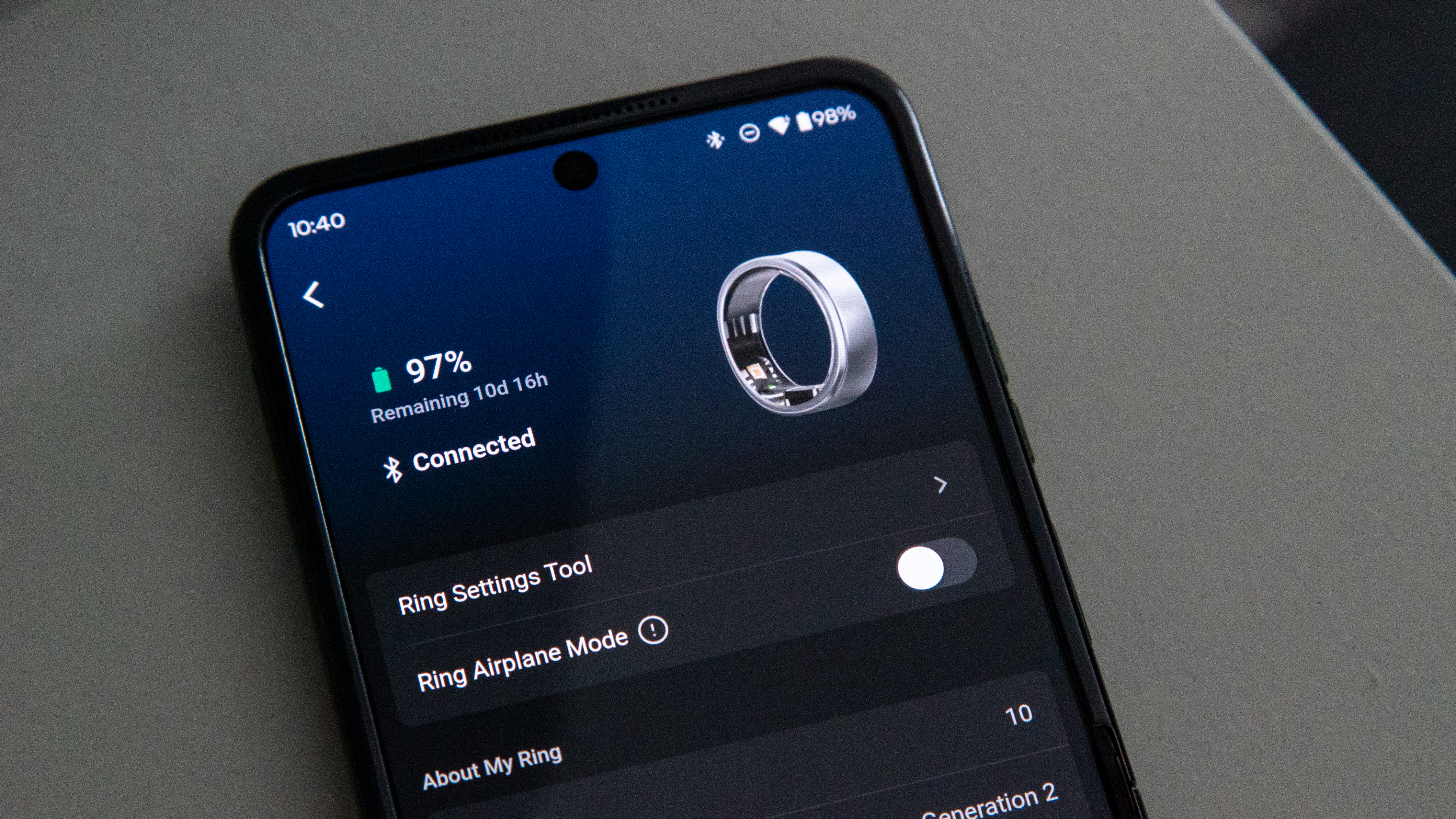
And just like the first generation, the RingConn Gen 2 Smart Ring comes with a charging case, which makes it fairly convenient to carry around as opposed to a charging dock that needs to be plugged in. The case has a 500mAh battery that you can charge separately, and RingConn even has a separate charging dock you can purchase separately, which has cool light indicators to show you the battery level of the ring.
Another thing you can purchase for the RingConn Gen 2 Smart Ring is a cover, which is surprisingly uncommon for smart ring manufacturers to offer. Even Samsung doesn't have one for the Galaxy Ring, which I find odd, so I commend RingConn for thinking of this. There are times when I will take off the ring, but I prefer to keep it on because I have a tendency to lose them easily. Therefore, having a cover makes it easier to handle things without worrying too much about damaging the ring.
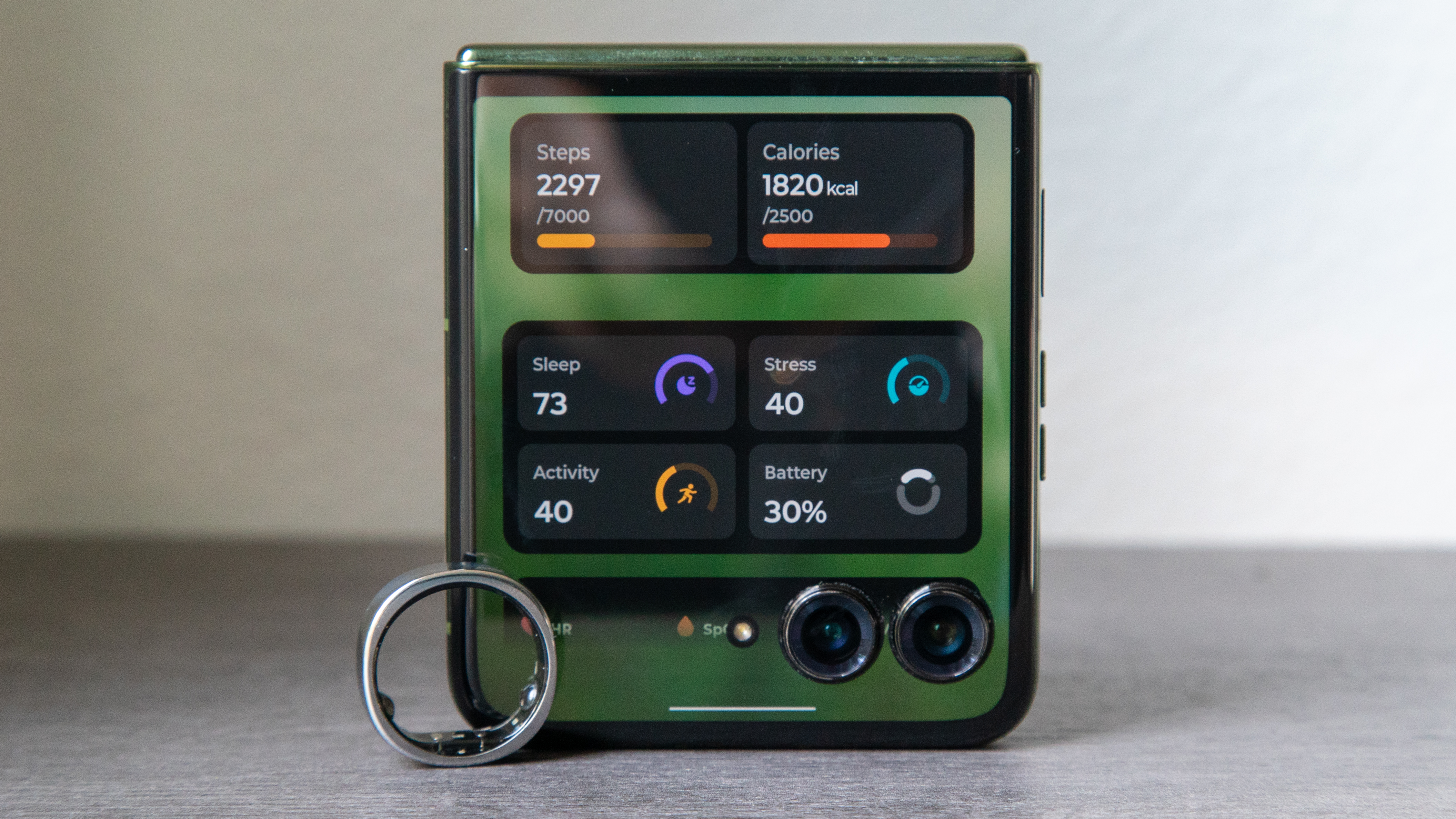
Aside from the actual ring, the app experience is also fantastic. While it doesn't offer everything I'd want in a smart ring app, it has a great layout that makes information very easy to view at a glance. There are only three tabs, so it's very easy to navigate.
Nowhere in the app will you find an option for a subscription, unlike some other companies that pretty much require it for their most useful functions/insights, or will hide it and surprise you with a "subscribe to use this" banner when you want to check out a certain future.
Widgets are also a nice touch and something I'd like to see from more smart ring manufacturers.
RingConn Gen 2 Smart Ring: Health tracking
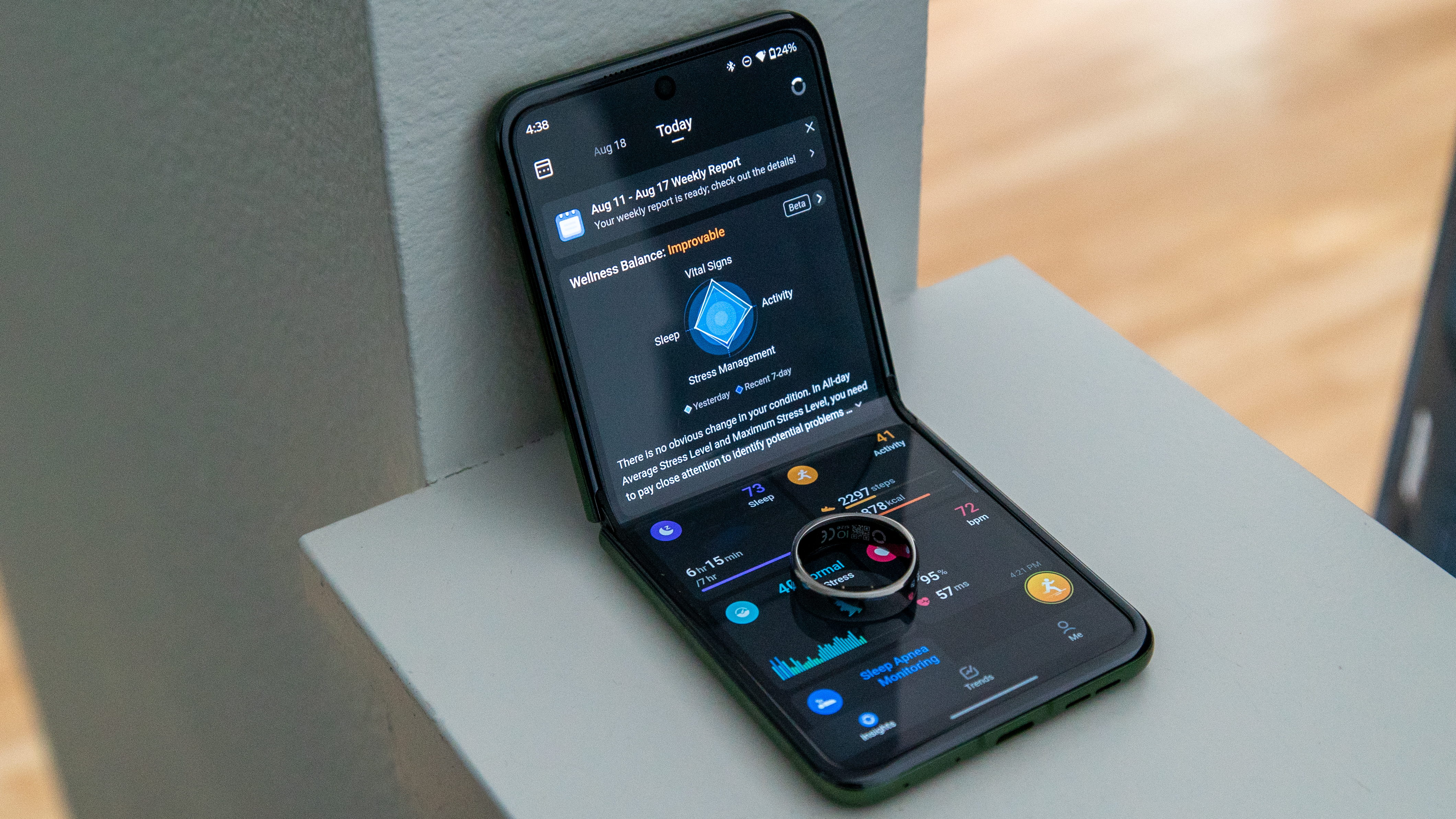
When it comes to fitness and health tracking, The RingConn Gen 2 Smart Ring covers the basics that you'd find on just about any other smart ring. The ring tracks your heart rate, sleep, blood, oxygen levels, stress, and even your skin temperature. This is pretty much par for the course on a smart ring, and as far as I can tell, the RingConn Gen 2 Smart Ring does pretty well that much of it. You can dive into each metric in the app to view detailed data on your sleep, heart rate, etc., and your trends for each metric.
You can also track several different workouts, such as outdoor running, indoor running, outdoor cycling, and outdoor walking. Smart rings aren't exactly known to have extensive exercise/sports modes, although RingConn says it's working on bringing more diverse options to the app.
You won't get a readiness score like you'll find with Samsung and Oura, but you get a more graphical representation of essentially the same thing. The app will show you a graph of your sleep, vital signs, activity, and stress management and how they compare to the previous day. I honestly think I might like this better. It'll also tell you which areas you can improve on and how you can improve them, and you can dive more deeply into the scores for each individual metric.
For example, with sleep, you get a sleep score, which factors in all the variables such as your sleep efficiency, your time asleep, and more. I like that it also shows you the optimal intervals for your sleep stages and where you fall short. Unfortunately, there have been a few times when I've taken a random nap during the middle of the day, and the app won't log it, even though there's a section in the sleep metrics dedicated to naps. I can always add them after the fact, but I rarely remember when I fell asleep or woke up since I'm not scrambling to log my nap immediately after waking up.
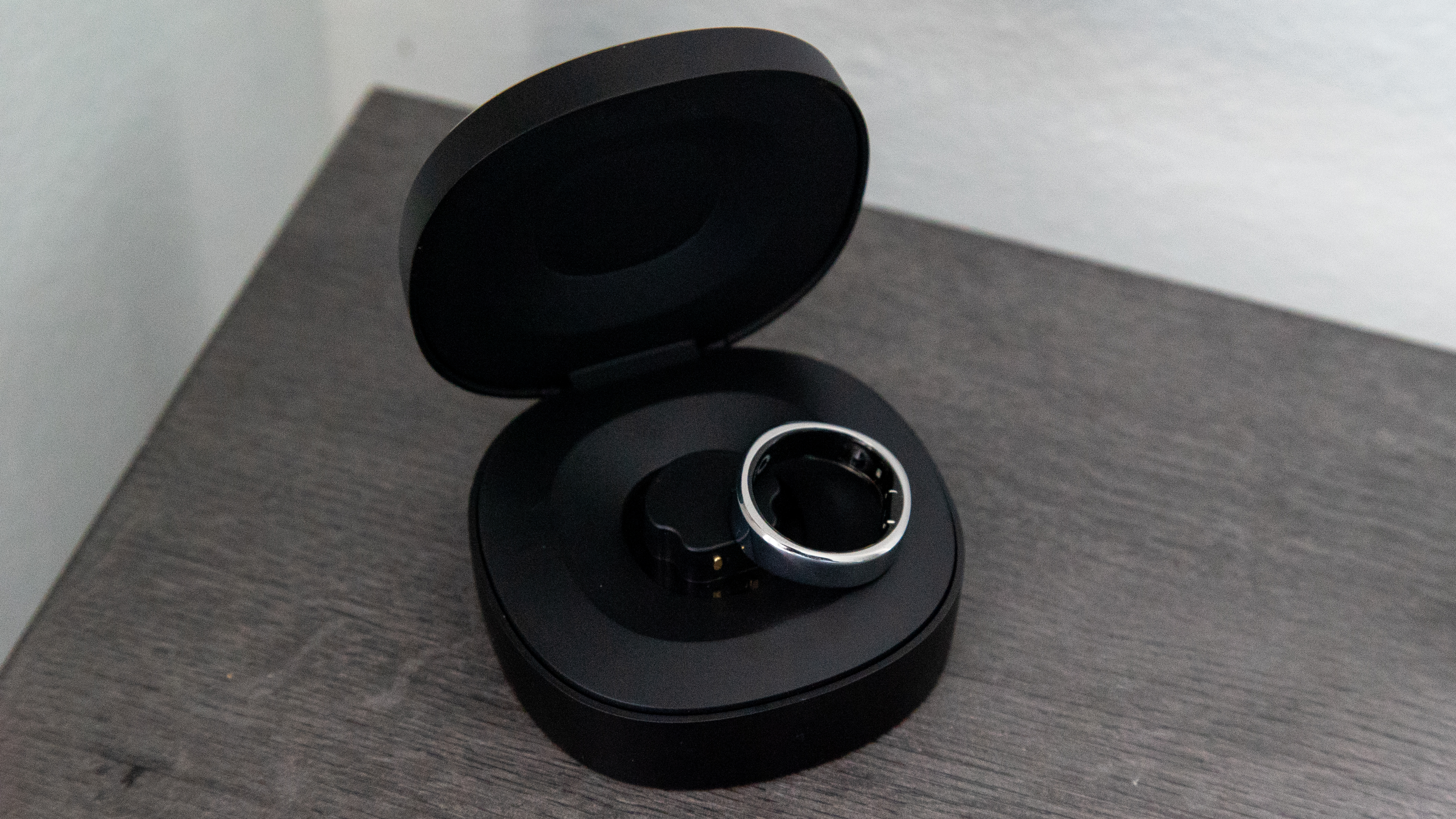
Smart rings are getting better at counting your steps, although no device is perfect. The RingConn Gen 2 Smart Ring is kind of hit or miss in this area. There are times when I found its steps to match closely with my Garmin Venu 3, for example, but then there are other times when the Gen 2 Smart Ring is way off. I haven't noticed much in the way of phantom steps where it'll somehow calculate that I've taken thousands of steps while I've been mostly sedentary, but when I am out and about, sometimes it'll under or over-calculate the steps I've taken.
You can see some of the results in our recent smart ring step test, in which I wore a few different rings and two smartwatches while walking 5,000 steps. The RingConn performed pretty poorly in these specific tests, but again, I found that there are times when the steps closely match those of my Garmin smartwatch, which does a pretty good job tracking my steps.
Still, I find you should take smart ring step counts with a grain of salt.
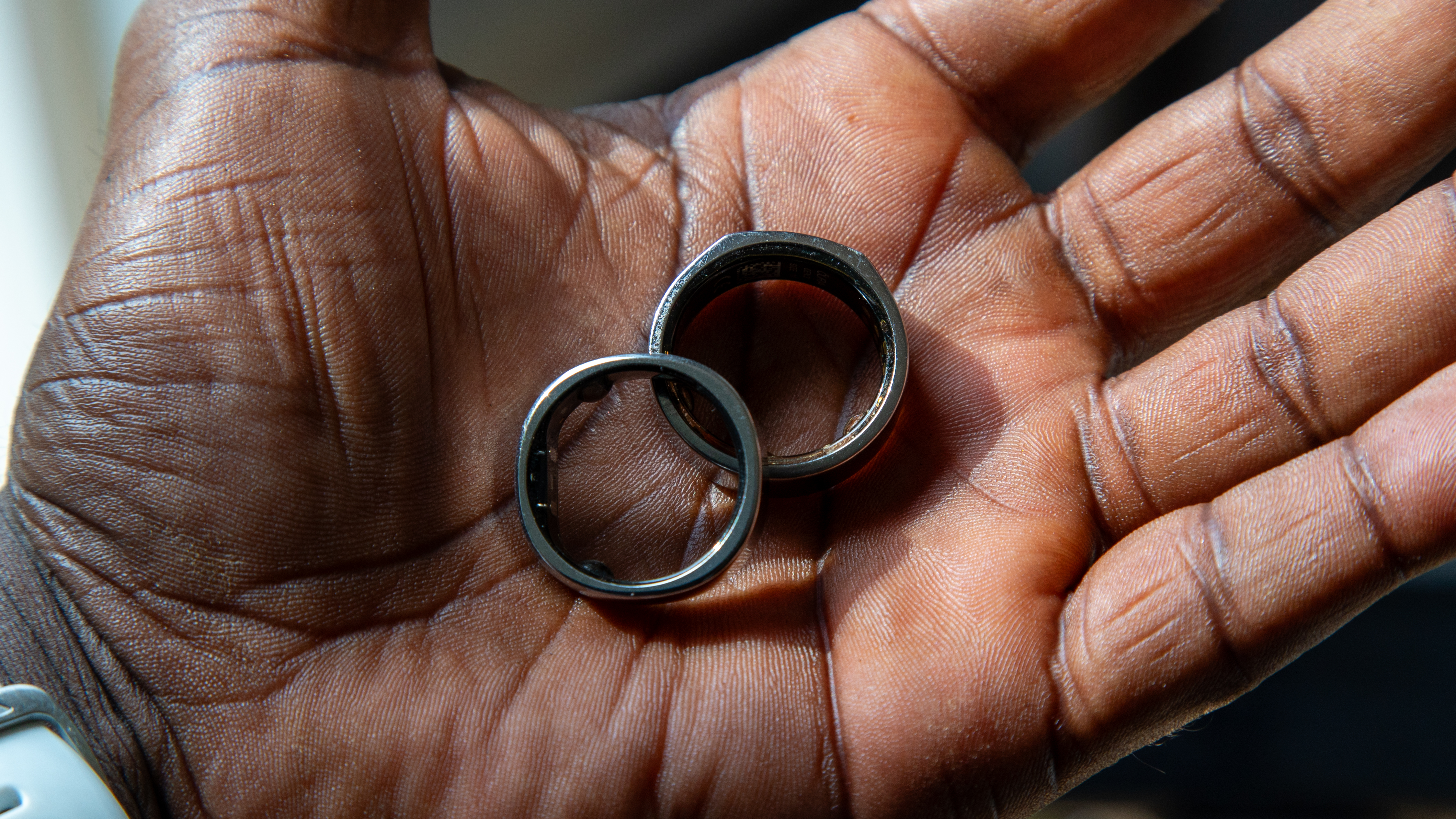
Then there's the newest feature on the RingConn Gen 2 Smart Ring: sleep apnea monitoring. For the uninformed, sleep apnea is a disorder that may cause you to stop breathing while you sleep, which is not good for some pretty obvious reasons but can severely disrupt your sleep and ultimately lead to some serious health conditions.
RingConn claims that the Gen 2 Smart Ring is the first smart ring to detect sleep apnea. It does this by using an AI-advanced OSA detection model to pinpoint moments when there are interruptions in airflow and decreases in blood oxygen levels while you sleep. According to RingConn, its model is 90% accurate, although the company is awaiting FDA approval.
It's an interesting feature that you have to manually enable before you go to sleep to ensure that the app remains active. When you wake up, you stop the monitoring, and the app analyzes the information, displaying the results on an AHI index bar. This will show you the number of apneas or hypopneas per hour during sleep, as well as the total number of events during the monitoring duration.
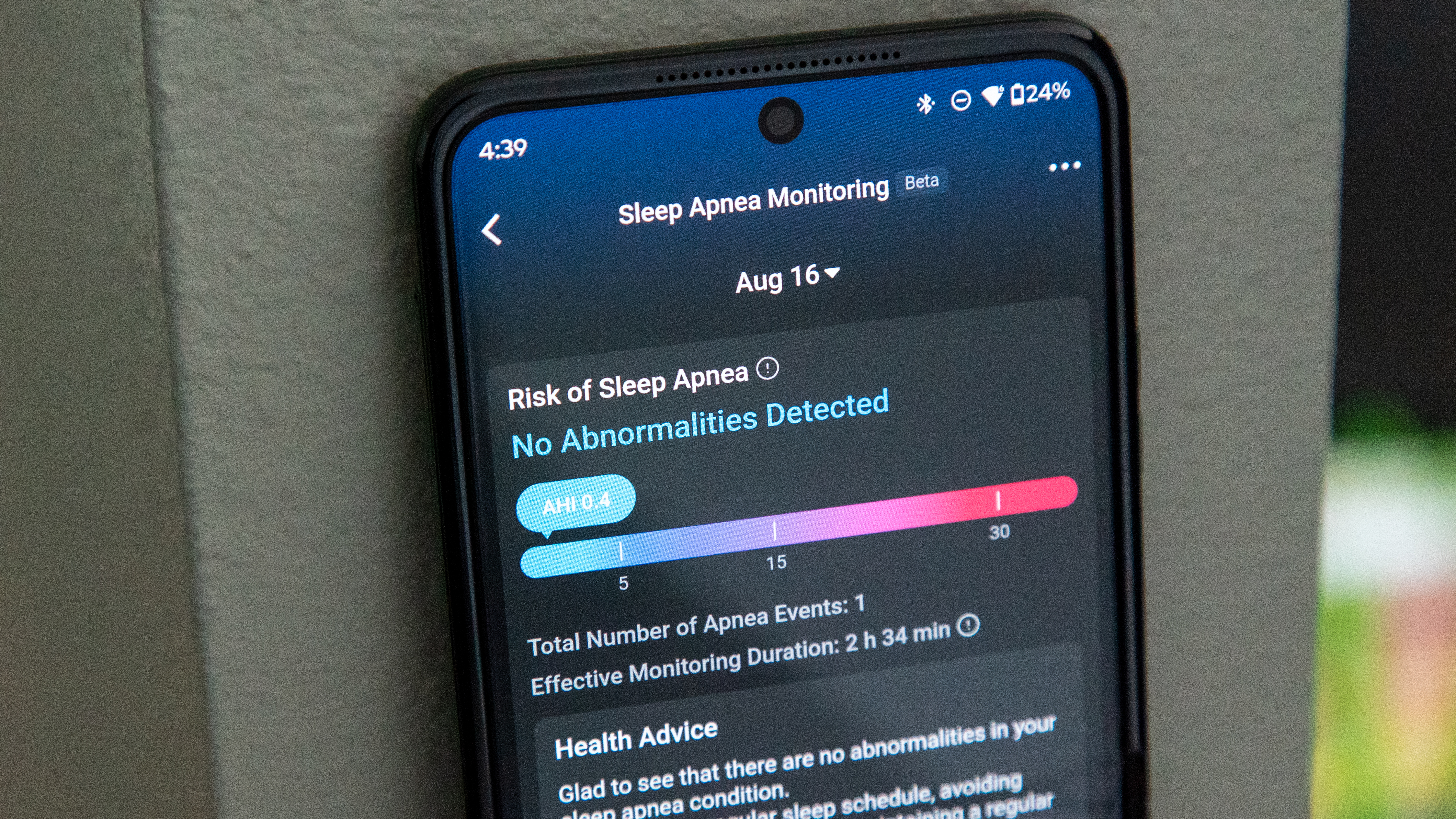
I didn't suspect I suffered from sleep apnea, and the RingConn Gen 2 Smart Ring assures me that I have nothing to worry about. However, while RingConn notes that this feature is not a diagnostic tool and that you should seek medical attention if you feel unwell, I can see how this feature can help people who may suspect they suffer from sleep apnea or are trying to improve what has already been diagnosed.
Android Central's senior editor, Andrew Myrick, discovered that he himself might suffer from sleep apnea, which is why he was so excited to see this feature arrive on the recently released Galaxy Watch models. However, not everyone enjoys wearing smartwatches to bed, so something like the RingConn Gen 2 Smart Ring would be ideal in a situation like this.
RingConn Gen 2 Smart Ring: What I don't like
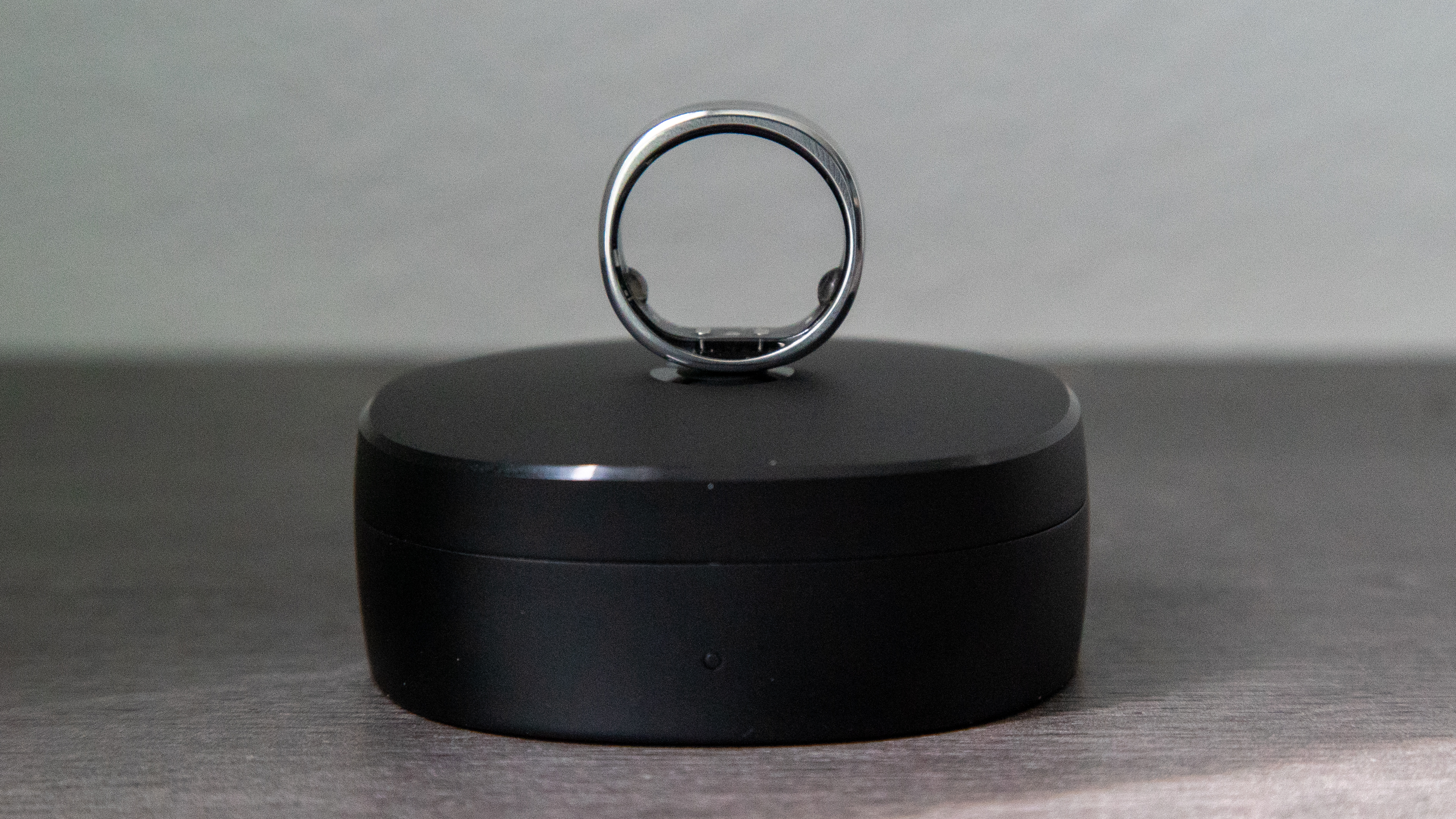
The sleep apnea feature is pretty cool, but there are some downsides. Firstly, it won't start automatically; as I mentioned, you must start and stop the feature manually. I don't know about you, but when I'm tired, I can barely remember to charge my phone, let alone open an app and tell it to start monitoring for a specific condition. I'm sure if you suspect you suffer from it or you know you do, you might be a little more inclined to remember, but I kind of wish there was an option for this to happen automatically once the ring detects you're asleep like an automatic option that you can toggle on or off.
But the second downside, which is why I can see how my suggestion may or may not work, is that sleep apnea monitoring drains the battery by quite a bit. And not just from the ring, but from your phone as well. On a regular night when you're not monitoring sleep apnea, you lose 2-3% of the Ring's battery life as it tracks your sleep normally. However, when you turn sleep apnea monitoring on, you'll lose about 10% or more depending on how long you sleep and how long the app is monitoring.
The plus side is that the RingConn Gen 2 Smart Ring has amazing battery life, so it kind of balances out, especially if sleep apnea is not a concern for you.
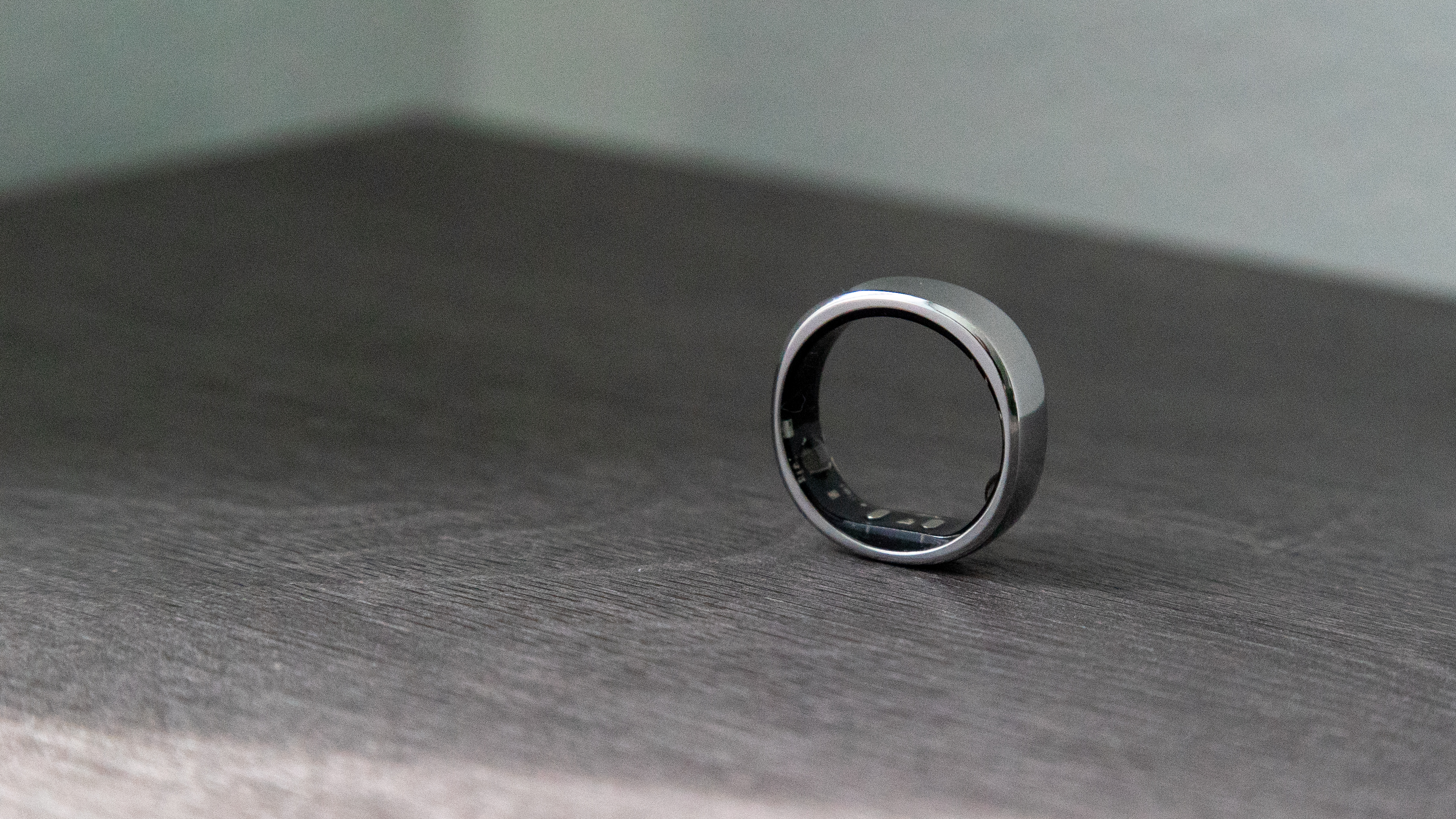
I do wish the exercise tracking was a little bit more robust. One of my favorite things about the Oura Ring is that it can automatically track certain exercises and activities, but it's all manual with the RingConn Gen 2 Smart Ring. Even after a long walk or run, the app will at least show that you've done something to elevate your heart rate, drastically increase your steps during a certain time, and burn a ton of calories. It all points to something happening, but the app won't actually say what happened unless you manually track the workout.
And this one's asinine, but like the first-generation RingConn Smart Ring, I wish the charging case was smaller. With as much battery life as you get from the ring, having such a large charging case just seems like overkill, especially when you look at the case included with the Galaxy Ring. Hopefully, RingConn adds this as an additional accessory that you can purchase separately.
Lastly, I wish the RingConn Gen 2 Smart Ring synced with Health Connect on Android and not just Google Fit. However, iPhone users will benefit from Apple Health connectivity.
RingConn Gen 2 Smart Ring: Competition
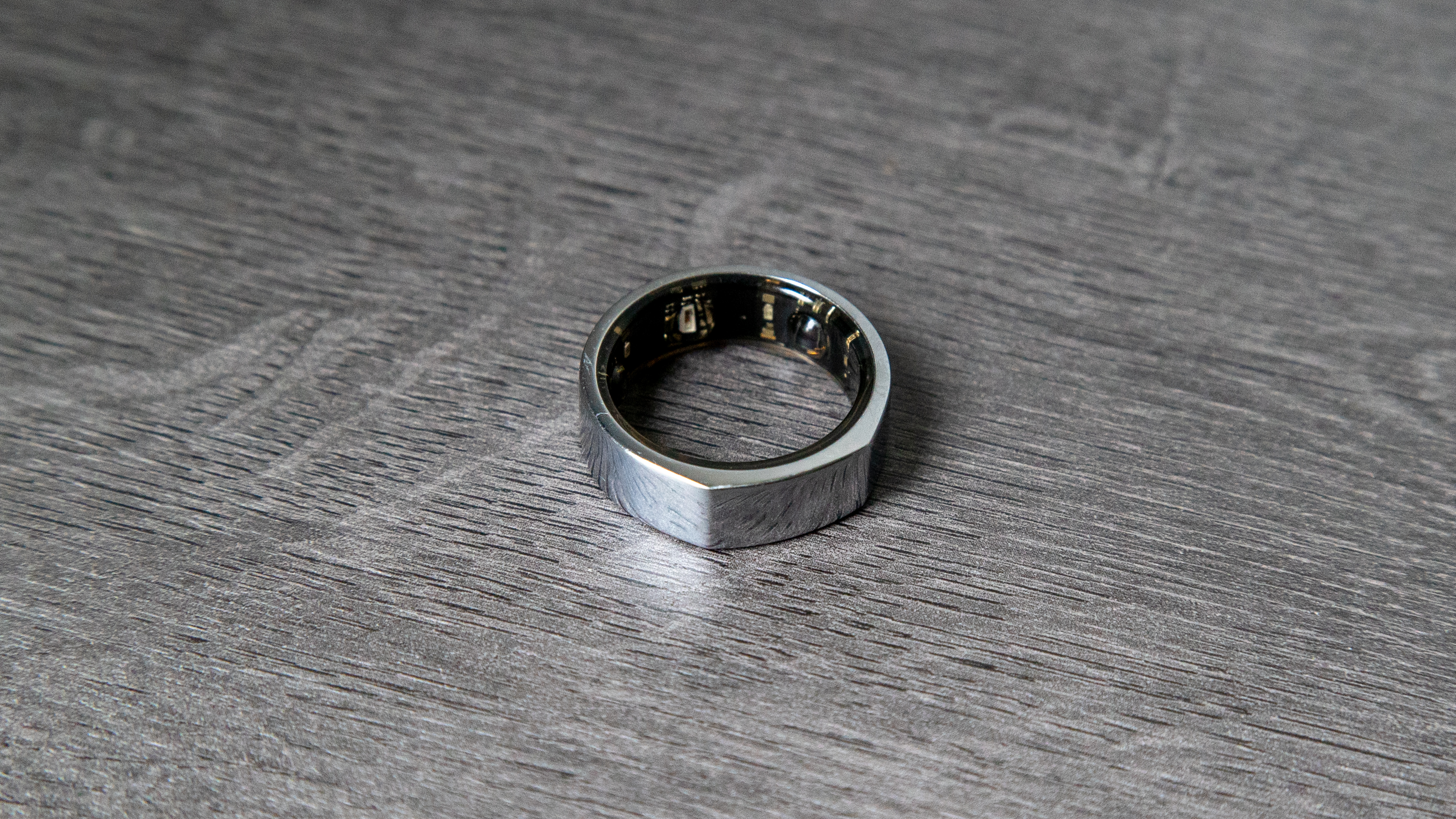
RingConn's biggest competitors are Oura and Samsung. The Oura Ring pretty much popularized a smart ring category, and the ordering continues to be one of the best smart rings on the market. It has great battery life, a very insightful app, automatic activity tracking, and it syncs with Health Connect. The downside is that it still relies on a monthly subscription when most other smart rings are subscription-free. This drives up the overall cost over the lifetime of the device, while the RingConn Gen 2 Smart Ring remains a cheaper option, even up front.
The Galaxy Ring is Samsung's first smart ring, which means that Samsung has a larger user base to appeal to since it's part of the Galaxy ecosystem. There's also no subscription here, and you get access to Samsung's Galaxy AI, which powers insights like the new energy score. However, as noted in our Galaxy Ring review, there are some growing pains since this is Samsung's first smart ring, with mediocre sleep tracking, gimmicky gestures, and various limitations on non-Samsung phones.
Another favorite is the Ultrahuman Ring Air, which offers pretty advanced features like AFib detection—the first smart ring to do this. You get a pretty comprehensive set of health tracking features, although the app experience is pretty poor, and you'll have to pay more upfront for the ring, plus extra if you want the headlining AFib detection feature.
RingConn Gen 2: Should you buy it?
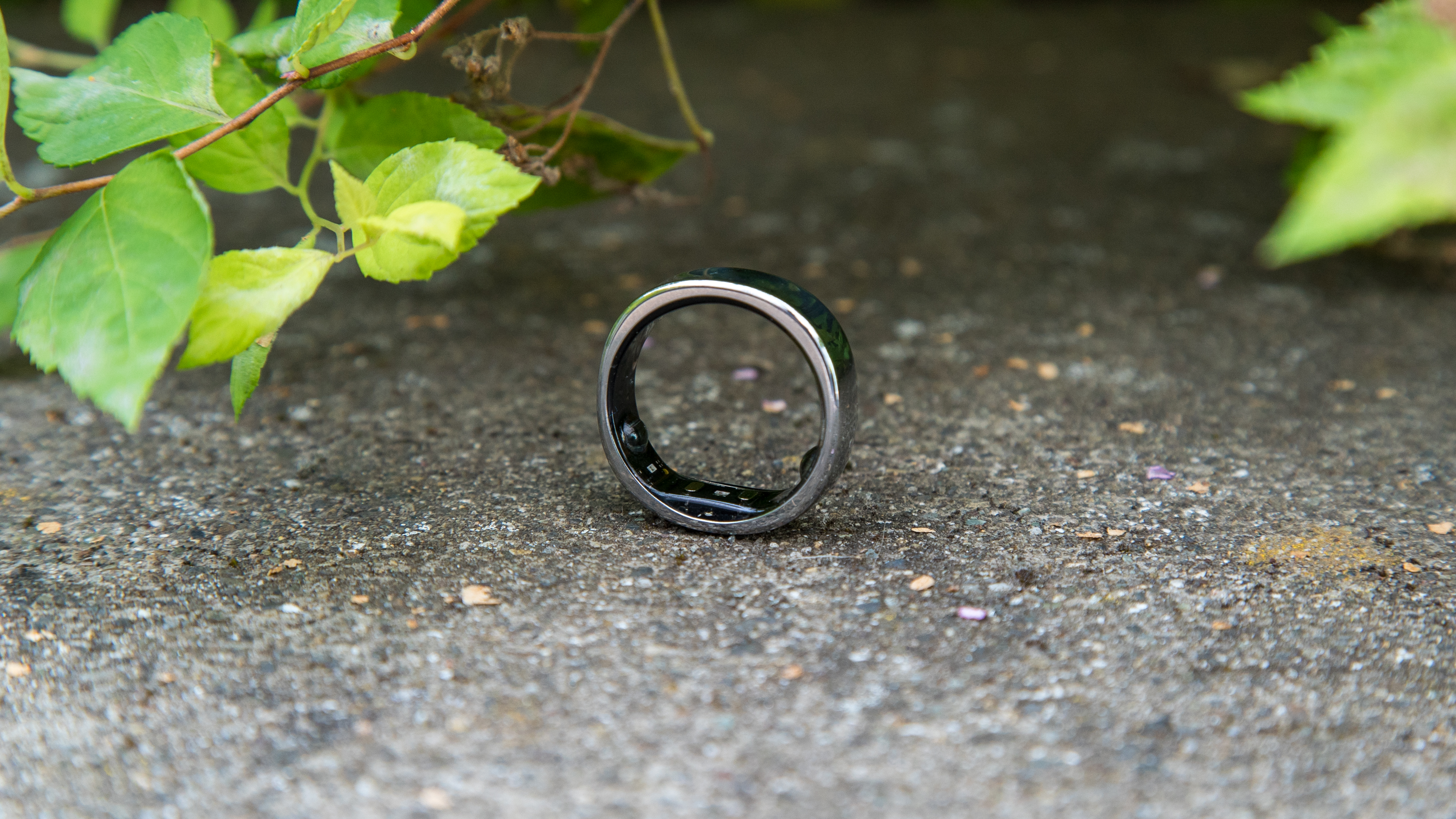
You should buy this if...
- You're in the market for a fairly affordable smart ring.
- You don't want to pay a subscription for access to features.
- You think you might suffer from sleep apnea.
You shouldn't buy this if...
- You want more robust exercise tracking/automatic workout detection.
- You want accurate and reliable step counting.
- You already own the first gen.
Smart rings are becoming a hot new wearable category, especially now that Samsung is in the ring, so to speak. RingConn may not have the same brand power as some of the giants, but the company has a solid offering that does the basics quite well. In fact, with the impressive battery life and sleep apnea feature, the RingConn Gen 2 Smart Ring manages to achieve some feats that we've mostly seen on smartwatches from Garmin or Samsung, and it's more than capable of holding its own against the best smart rings on the market.
The RingConn Gen 2 Smart Ring is one smart ring that shouldn't be overlooked, as it offers great value for those who want to take charge of their health.
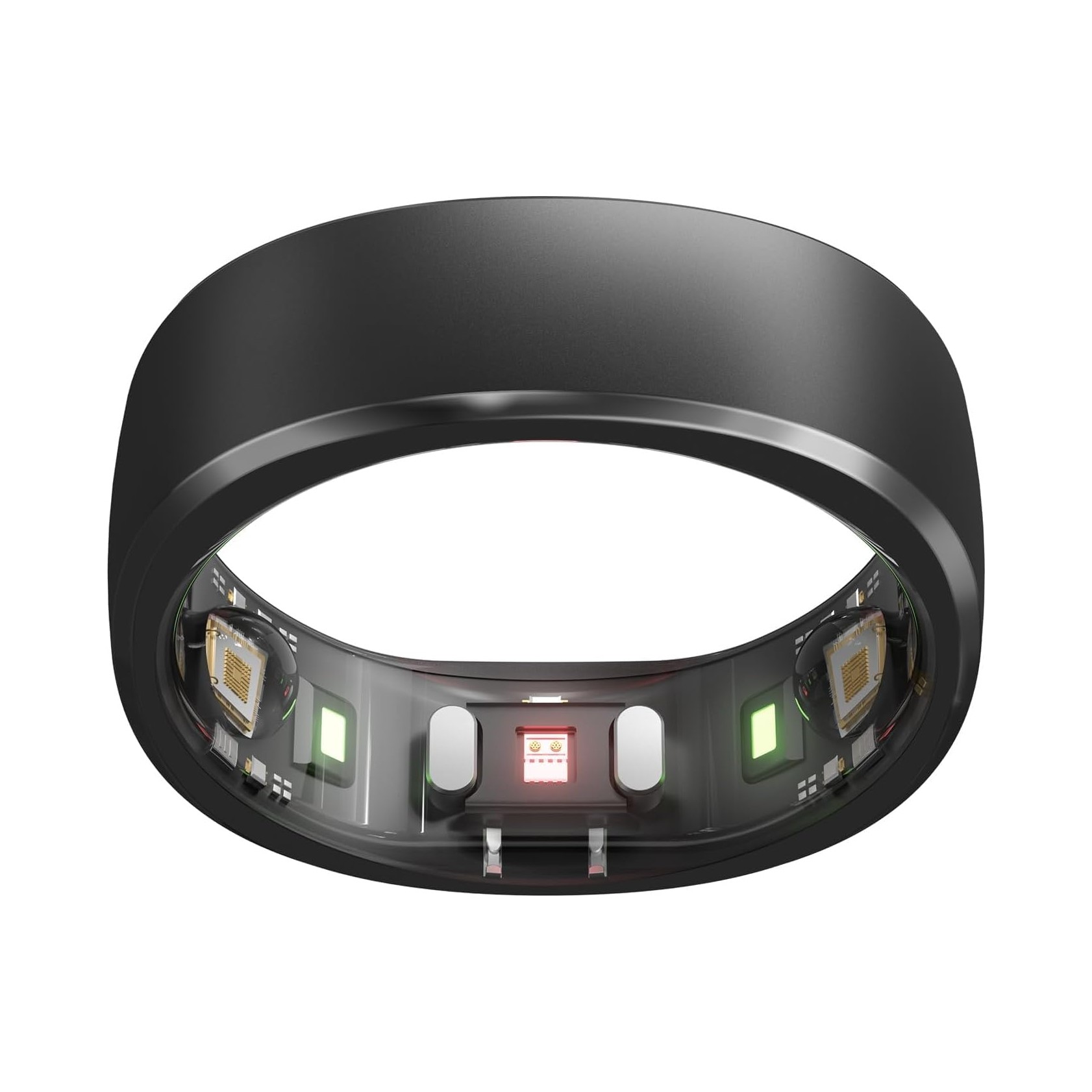
Battery king
The RingConn Gen 2 Smart Ring takes what's great about the original RingConn Smart Ring and throws it into an even better package that's thinner and sleeker and can squeeze out even more battery life than before. It also comes with a handy new sleep apnea monitoring feature that could be helpful to millions who suffer from it.

Derrek is the managing editor of Android Central, helping to guide the site's editorial content and direction to reach and resonate with readers, old and new, who are just as passionate about tech as we are. He's been obsessed with mobile technology since he was 12, when he discovered the Nokia N90, and his love of flip phones and new form factors continues to this day. As a fitness enthusiast, he has always been curious about the intersection of tech and fitness. When he's not working, he's probably working out.
You must confirm your public display name before commenting
Please logout and then login again, you will then be prompted to enter your display name.
